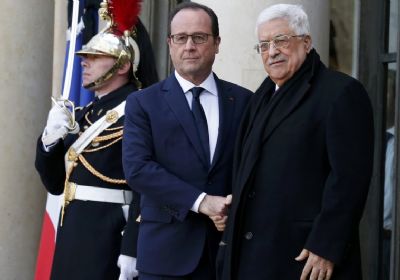"It is easy for the world to blame Israel for all its problems. It is easy for many leaders to blame Israel for the failure of the peace process with the Palestinians. It may be easy, but it's not correct. In fact, it's a serious mistake.
It's also easy to think that the international community, multilateral organizations such as the United Nations, or international conferences can impose a solution on the parties and, voila, conflicts will be resolved. But if the parties aren't willing, if the conflicts aren't ripe enough, there's no possible solution. In fact, lasting peace, true peace, can only be the result of direct negotiations between the parties involved and the agreements they freely reach.
Peace between Israelis and Palestinians does not need more plans or conferences such as the one to be held in Paris on Jan. 15. What it does require are two truly committed parties ready to negotiate.
Unfortunately, that's not the case. For a few years now, those responsible in the Palestinian Authority have chosen not to sit down and negotiate with the Israeli government. Instead, they have launched a unilateral campaign so that it will fall to the international community to impose recognition as a sovereign state without their having to make the typical concessions that negotiations entail...
Resolution 2334, recently adopted by the U.N. Security Council, has endorsed the Palestinian narrative that the core of the problem comes down to a geographical issue: the settlements in the West Bank and the 1967 borders. Yet this interpretation does not hold water. Every time Israel has swapped land for peace, it has only earned more terrorism. The most striking and visible case is the Gaza Strip: Since Israel carried out its unilateral withdrawal in 2005, Hamas has ruled in that territory with total impunity and the attacks on Israel have only continued. Thousands of rockets and missiles have been launched from Gaza against civilian populations in Israel...
[T]his conference cannot produce any results that will bring peace between Israelis and Palestinians. On the contrary, it can fuel more violence and mutual rejection -- just the opposite of what it seeks..."
January 12, 2017
Call Off the Paris Conference

French President Francois Hollande and Palestinian Authority President Mahmoud Abbas (File photo)
Date
January 12, 2017
Title
Call Off the Paris Conference, Israel Hayom
Author(s)
Rafael L. Bardaji and Col. (ret.) Richard Kemp
Original Source
